A groundbreaking AI-Powered Athletics project is underway at the University of Florida, thanks to $2.5 million in support from UF President Ben Sasse’s Strategic Funding Initiative.
The undertaking is one of five components of the newly funded UF & Sport Collaborative, announced in December – a multi-faceted initiative to propel UF to the global stage in sports performance, healthcare, and communication, while illuminating its world-class sports facilities and partnerships.
The AI-Powered Athletics piece of the initiative is a partnership between the Herbert Wertheim College of Engineering and the University Athletic Association (UAA). The project will help build an infrastructure to enable AI-powered athletics based on the wearable sensor and health data of student-athletes. Funded projects may generate pilot data and initial publications that lead to large-scale research proposals for federal agencies.
“UF is already a national leader in sports performance, and this initiative will allow us to showcase our incredible offerings even more,” Sasse said. “The AI-Powered Athletics component of the UF & Sport Collaborative project will draw more attention to our outstanding sports programs and help our student-athletes thrive.”
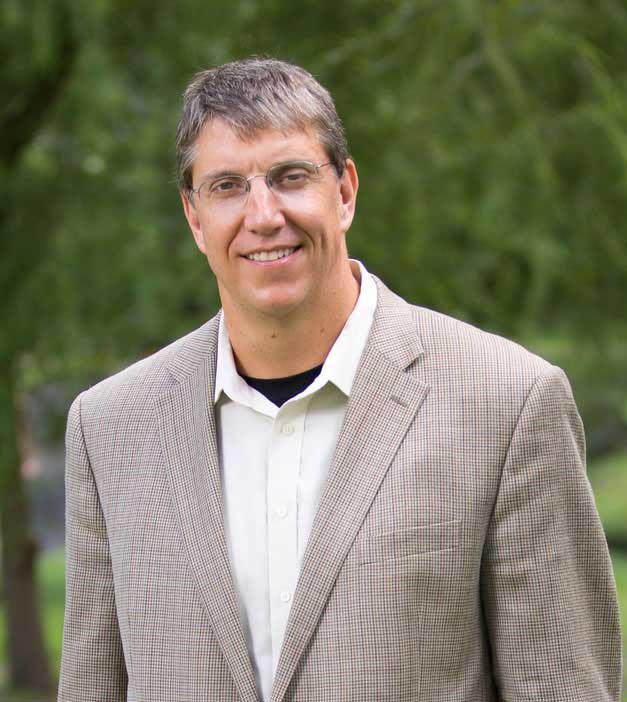
As a whole, the UF & Sport Collaborative also involves projects from the Warrington College of Business, the College of Health and Human Performance, the College of Journalism and Communications, and the College of Medicine.
“With the large-scale hiring across campus in AI-related fields, UF is unique in the capabilities and resources it can dedicate to this type of research,” said Dan Ferris, Ph.D., the Robert W. Adenbaum Professor of Engineering Innovation in the J. Crayton Pruitt Family Department of Biomedical Engineering at the Herbert Wertheim College of Engineering. “The UAAcollects a large amount of data from UF student-athletes on health, nutrition, and sports performance, including wearable sensors at practices and games. Most of the data is under-analyzed and under-utilized, and our proposed treatment of the data could greatly benefit team performance and student-athlete health and well-being.”
To address this gap, Ferris and his team will perform three project strands: organizing, distributing, and analyzing the rich UF student-athlete data; fully leveraging wearable sensors by building human-facing interfaces, which distill information in a way that improves performance and well-being; and providing pilot awards to faculty members across campus who propose scientific and/or educational research projects in collaboration with the research team.
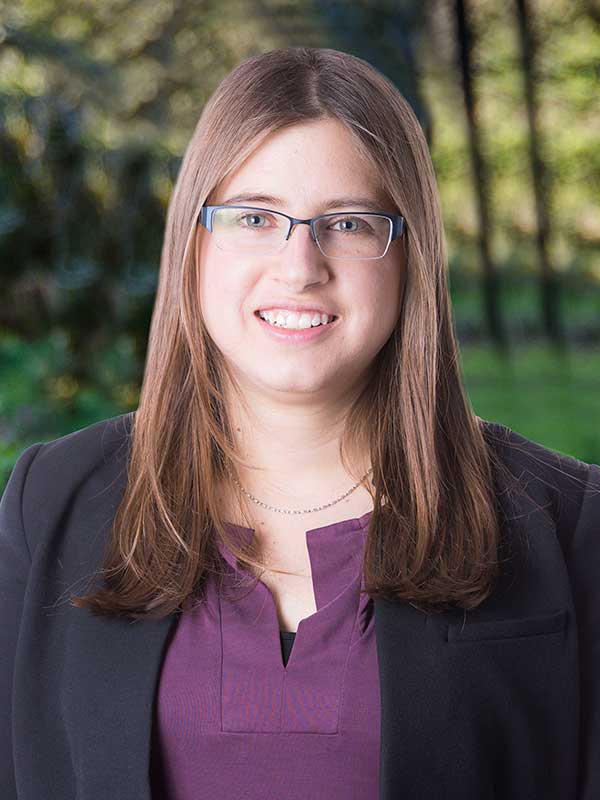
Jennifer Nichols, Ph.D., assistant professor in the Department of Biomedical Engineering, will be collaborating with Spencer Thomas, performance analytics and testing coordinator for the UAA, to spearhead the task of strand one – parsing and analyzing the valuable, uncontextualized data collected through wearables, performative assessments, medical examinations, and other means.
“My pedigree bridges experimental work and computational work. Some of my research involves building personalized human models using artificial intelligence methods of the hand to mimic any motion,” Nichols said. “I am a biomechanist by training, so my expertise is really in the data analysis of human movement. But I also bring a strong background in orthopedic injury, so I’m very interested in using the data to address sports injury prevention, creating a predictive analysis to stop the injury from ever happening.”
Forrest Masters, Ph.D., interim dean of the Herbert Wertheim College of Engineering, recognizes the tremendous potential of AI-powered athletics.
“Uniting engineering, computer science, and the UF Athletic Association to harness AI, wearable sensor technology, and advanced data analytics will help our student-athletes live their best lives on and off the field,” Masters said.
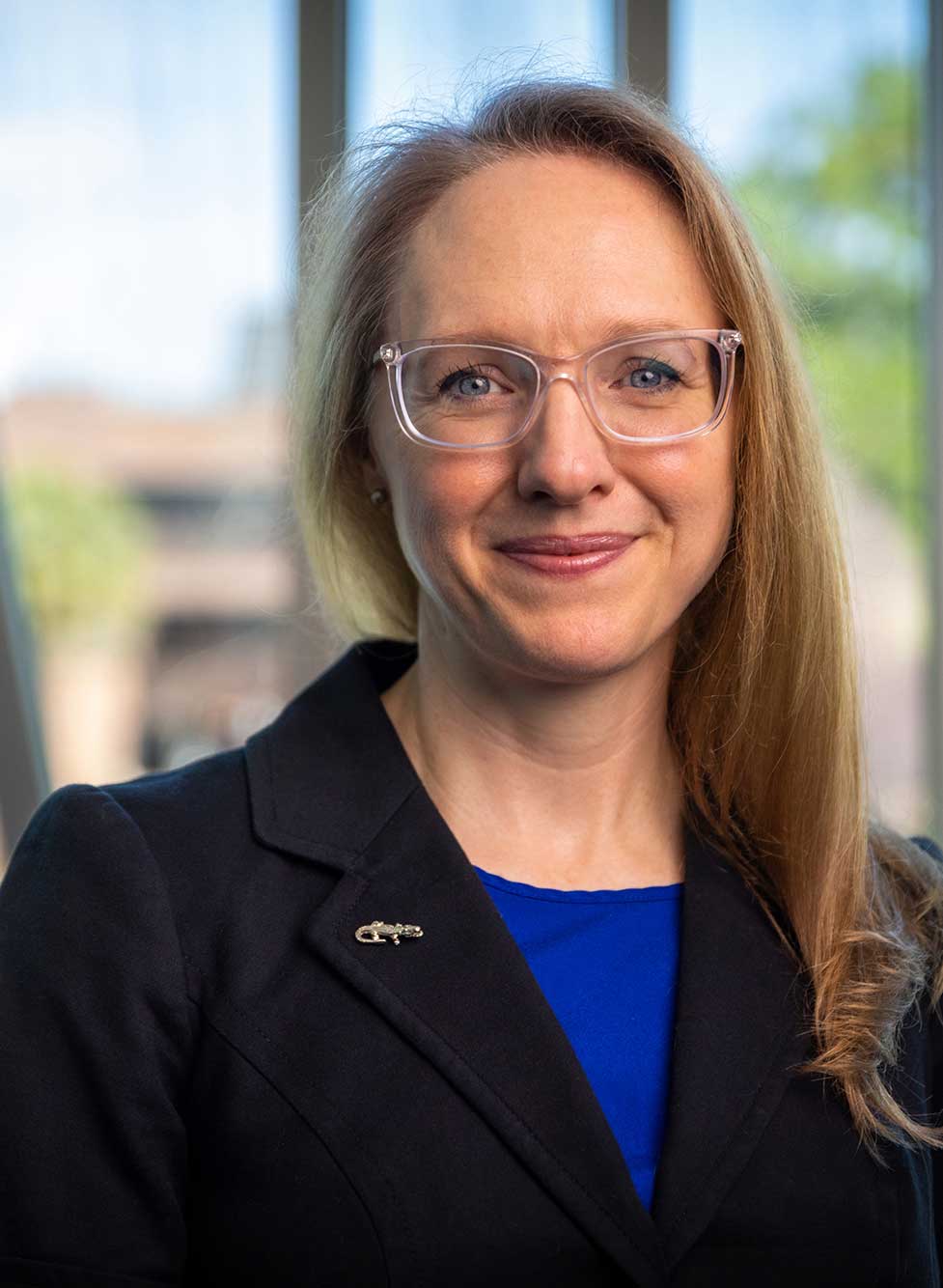
The pilot project data and initial publications may further incubate larger-scale research proposals to federal agencies like the U.S. Department of Defense, the National Science Foundation, and the National Institutes of Health.
“There are at least two ways this research impacts the state of Florida. Because of the way we intend to use this athletics data in classrooms, it will directly strengthen the educational experience of UF students by bringing them a very compelling, engaging, hands-on way to learn about and use AI,” said Kristy Boyer, Ph.D., professor in the Department of Computer and Information Science and Engineering, and co-principal investigator of the AI-Powered Athletics thrust of the UF & Sport Collaborative. “Secondly, we have a team that is passionate about building analytics and user-facing apps that will – in the future – serve all people, not just athletes. For instance, we know the challenges that result from a sedentary lifestyle in terms of our healthcare and the related public policy; it’s a crisis. There’s a lot of data that indicates that if we can get people active, get them moving, and teach them about their bodies holistically using these tools, it will reap benefits for disease prevention.”
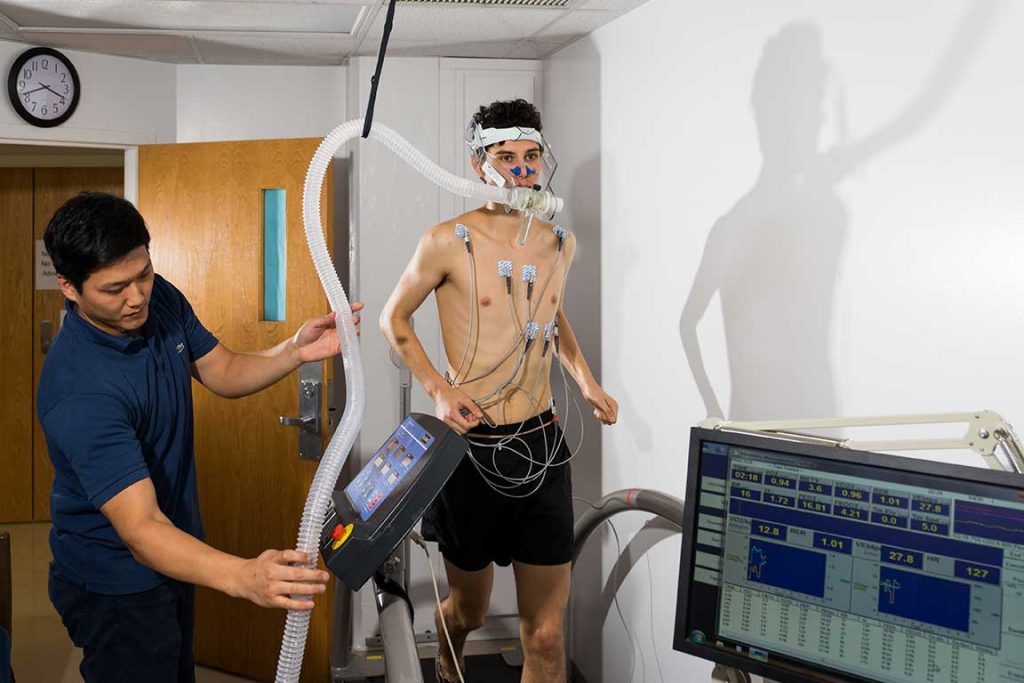
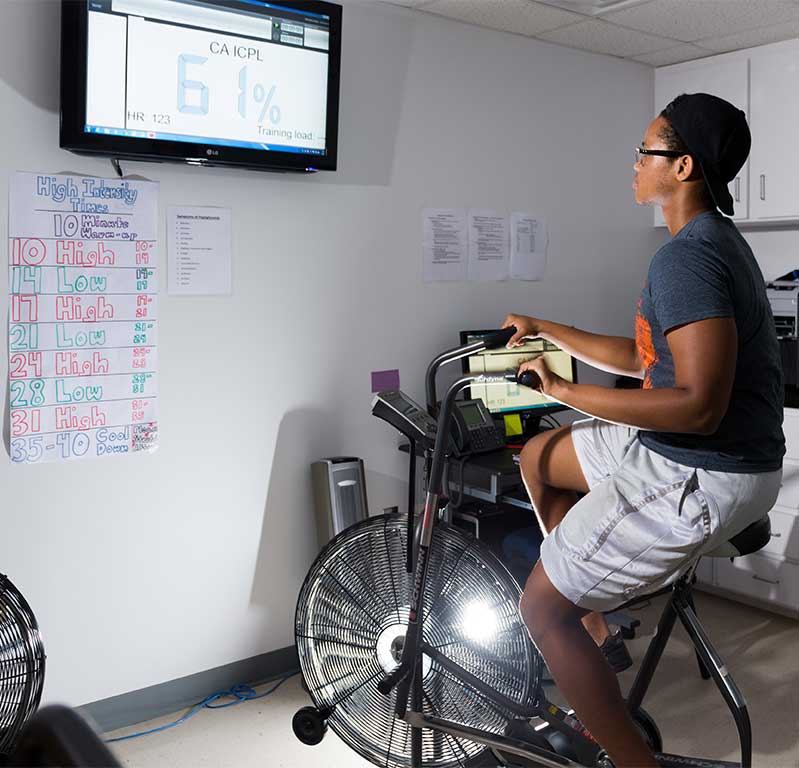
In addition to AI-Powered Athletics, the other four parts of the UF & Sport Collaborative are as follows:
- Sport and Health Leaders: A new certificate program through the College of Health and Human Performance will increase students’ understanding of athletes and the factors that influence their well-being. Available courses will include Personal and Family Health, Athlete Health and Well-being, Athlete Career Management, and Worksite and Health Promotion.
- Gator AccelerAItor for Sport Analytics: The College of Health and Human Performance and the Warrington College of Business will partner with the UF’s men’s basketball team to improve recruitment, player evaluation, scouting, and game strategy through AI tools. The project will also develop a master’s degree program in AI and Sports Analytics, and provide students with a real-world laboratory for working directly with teams and athletes.
- Transforming Sport Science Research for Every Body: The College of Medicine will help advance the analytic capacity of the UF Health Sports Performance Center, making it a centerpiece of research and testing for able-bodied and para-athletes of all ages and fitness levels. The Center will advance precision treatment, performance training, and research inclusivity for athletes.
- Gator Nation Gameday Live: The College of Journalism and Communications will offer students an opportunity to produce a live, one-hour sports preview show, modeled after ESPN’s “College GameDay” program. Students will gain experience in anchoring, reporting, producing, and directing. The program will air live on various platforms on the Saturday mornings of Gator football home games. Students will provide a preview of that day’s game, insightful breakdowns and analytics, profiles of UF athletes and coaches, and highlights of the game-day experience.
Support for the UF & Sport Collaborative comes from $130 million in funding that UF received from the Florida Legislature last year. Sasse established that, for the first time, more than half of the funds would be directed to units for special strategic projects. A total of $24 million was delivered to deans to report back on their uses of the funds, and another $50 million was made available across all colleges and administrative units. UF received more than 250 submissions and 40 proposals were selected – each one aimed at enhancing the student experience and advancing interdisciplinary scholarship.
By Shawn Jenkins
